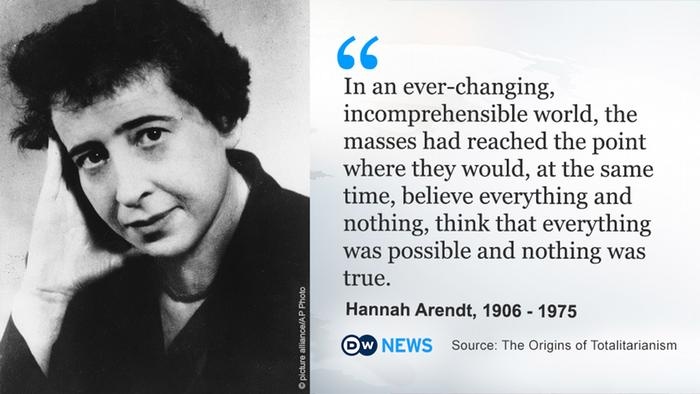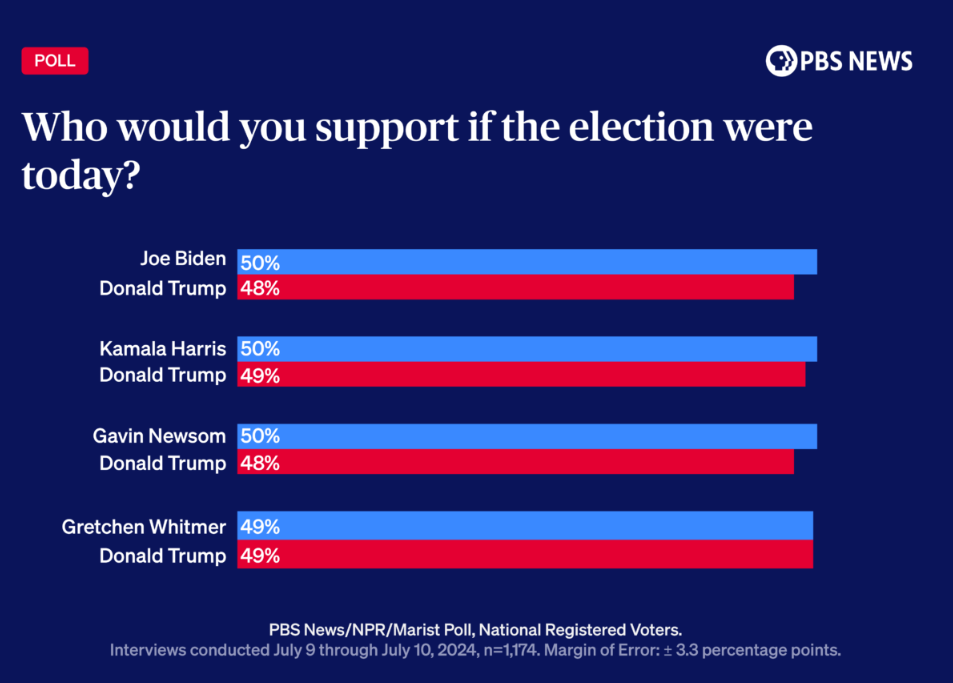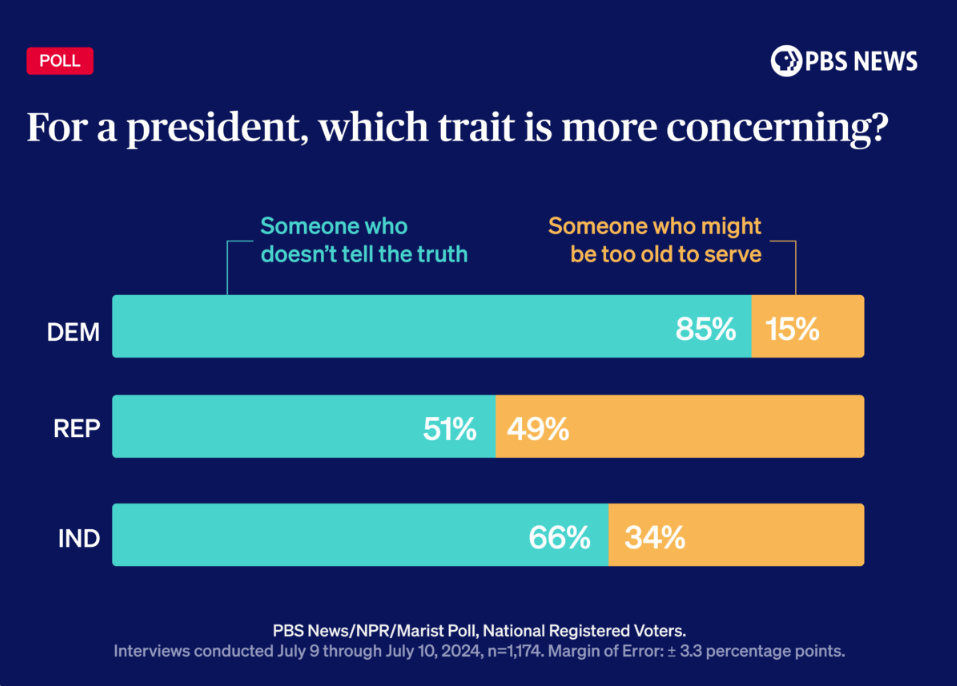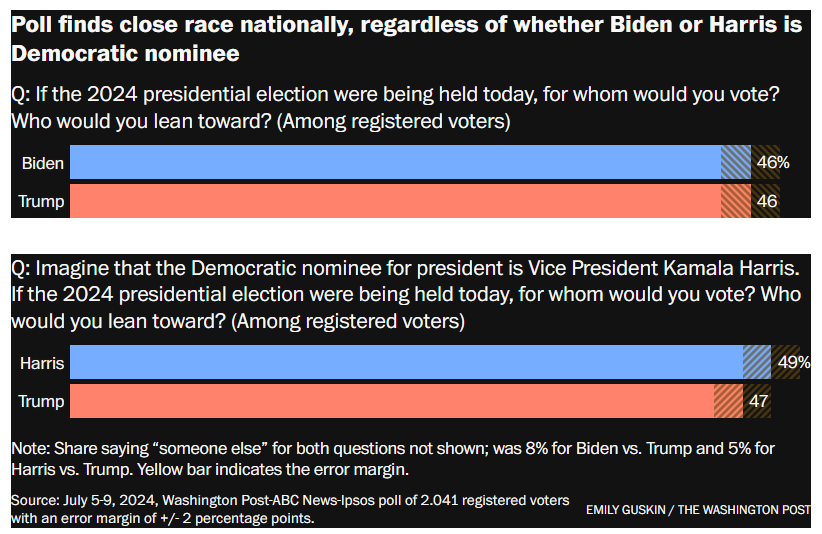That data struck me as something new, since I could not find or recall poll data that hinted at the possibility that chronic lying by a politician or demagogue could be a significant factor in a voter's choice of candidate. My recollection was that in 2016 when chronic lying by DJT became apparent to me I was shocked that it did not seem to faze anyone I came across. No one seemed to think it was important, while in my mind it was as important as the obvious authoritarianism that I thought DJT was exhibiting at the time. I recall citing this Politifact data in 2016 in several posts and/or comments:
I got two reactions to that data in 2016 and my argument that DJT was an astonishing chronic liar. One was from people who opposed or were neutral to DJT. They dismissed the data with a blithe, "all politicians lie" response. They ignored my "but look at the data" argument. They just shrugged it off.
While many voters express a preference for honesty, the strategic use of lies by politicians and the complex media environment can lead to a greater tolerance for dishonesty. This dynamic has significant implications for public trust and the ethical standards of political discourse.
Politicians are motivated by the desire to build a positive reputation, therefore they will be more likely to deliver false statements (incurring the risk of being fact-checked) when the potential benefit outweighs the cost. This happens as new elections come closer, since the electoral benefit of falsehoods increases along with the probability of being checked too late (after the election day). Politicians are less likely to issue falsehoods in detailed statements and in scripted communication, since the reputational cost are higher because such falsehoods would be considered intentional.
Is there any evidence that I am not just a lone crackpot in thinking that the data suggesting that being a chronic liar might be, just might be, something more important than the standard all politicians lie standard for acceptable veracity in American society? Maybe. I found this today, talking about the same data I got jazzed about yesterday:
One possible reason the polls haven’t moved as much as pundits expected: Voters still don’t like or trust TrumpA new Marist poll takes the novel step of asking registered voters which is more off-putting in an occupant of the Oval Office: dishonesty or excessive age. The results are surprising, and along with other polling along these lines, it should influence how Joe Biden’s and Donald Trump’s relative qualifications for the presidency are covered from here on out.
The poll asked: Which is more concerning in a president, someone who doesn’t tell the truth, or someone who might be too old to serve? The results were lopsided: By 68 to 32 percent, respondents were more concerned about the lying than the aging. Given the relentless media focus on presidential age of late, that’s simply remarkable.
While the poll doesn’t directly compare Trump and Biden on that particular question, it also finds that 52 percent of Americans say Biden has the “character to serve as president,” whereas only 43 percent say this about Trump. Fifty-six percent say Trump lacks the character to serve, which surely reflects public perceptions of Trump’s dishonesty.
The new Marist poll, by the way, also shows Biden leading Trump by 50 to 48 percent. But that’s out of sync with polling averages, so we should be cautious about that finding. Still, even if the overall poll is off by a few points, the numbers on dishonesty and age remain striking.
Trump was probably the most dishonest president in U.S. history. His lies and distortions topped 30,000 during his presidency, according to The Washington Post. That has continued unabated: CNN fact-checker Daniel Dale tallied up over 30 lies from Trump at the recent presidential debate, while Biden’s falsehoods amounted to maybe a third of that. Critically, many of Trump’s whoppers were far more gargantuan lies—such as the claim that Democratic states execute babies—leading Dale to describe Trump’s lying as “staggering.”
What the new Marist poll adds to this debate is the idea that voters see excessive lying as a serious problem in a president. Yet ask yourself this: How often is Trump’s lying covered that way? Trump’s dishonesty is rarely treated as a sign of his temperamental unfitness for the presidency. Biden’s age, of course, is constantly covered as an important factor in determining his fitness for the office. Biden’s age should be covered this way, to be clear. But so should Trump’s relentless lying.
The key distinction here is between mental unfitness for the presidency (where Biden does very badly, relative to Trump), and temperamental unfitness for that majestic office. On the latter, Quinnipiac found earlier this year Biden does significantly better than Trump does, with an extraordinary 61 percent saying Trump is temperamentally unfit for the presidency.









